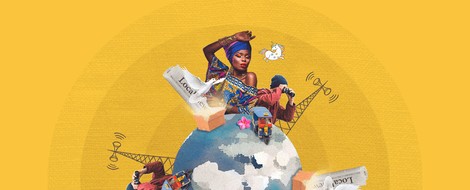Your podcast discovery platform
Curious minds select the most fascinating podcasts from around the world. Discover hand-piqd audio recommendations on your favorite topics.

piqer for: Global finds Globalization and politics Technology and society
Turkish journalist, blogger and media expert. Writes regular columns for The Arab Weekly and contributes to Süddeutsche Zeitung, El Pais and the Guardian. An European Press Prize Laureate for 'excellence in journalism' in 2014, Baydar was awarded the prestigious 'Journalistenpreis' in Germany by Südosteuropa Foundation in February 2018.
Playboy Magazine Was Revolutionary, And Here Is Why
He came, he exposed and he won. This is a way to describe the late Hugh Hefner — as a cunning marketing adventurer. It would be wrong. The founder of Playboy magazine was certainly a complex personality, who impressed and deceived at equal measure; had to face tons of accusations of sexism; of selling female body as any other 'product'. Yet, intentionally or not, his launch came at a right time the American society, which by the early fifties was in convulsions about sex and hypocrisy.
Playboy bulldozed into the values and emerged swiftly as the libertarian starship, shattering the conservative values of America.
It surged on the First Amendment, and each issue was a promotion of freedom per se. That its circulation reached 7.2 million in 1972 should be seen in that context.
What made Playboy lasting and consistent was, though, something else than nude pictures of women, and those folded posters in its midst.
It was the Playboy interview.
Thousands and thousands of words spilled from some of America’s greatest activists, thinkers, and celebrities. As Hefner explained in an editorial for Playboy‘s inaugural issue in 1953, which offered a never-before seen set of nude Marilyn Monroe photos, “We enjoy mixing up cocktails and an hors d’oeuvre or two, putting a little mood music on the phonograph and inviting in a female acquaintance for a quiet discussion on Picasso, Nietzsche, jazz, sex.”
What was so special with them? Well, the way they were done. Writers assigned would come back with at least six hours of taped conversations, some even submitted 20-hours-long talks. This method surely revolutionized the idea of a magazine interview.
The rise of access journalism — celebrities with teams of agents and PR managers — became a barrier to how much an interviewer could ask and a subject could reveal. With Hefner’s passing, it’s worth remembering what made Playboy a cultural bastion. It wasn’t just the tits and asses, and it wasn’t the articles. It was the interviews.
